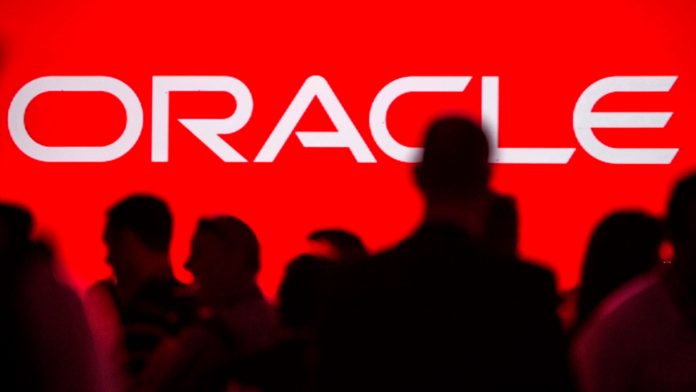ISLAMABAD: Since Oracle’s $300bn deal with OpenAI on September 10, the company’s stock has lost $315bn in market value, drawing attention to investor concerns over the tech giant’s heavy investment in artificial intelligence (AI) infrastructure.
While it is a simplification to focus solely on market cap, Oracle’s stock decline stands out against similar market indices like the Nasdaq Composite, Microsoft, and the Dow Jones US Software Index. The drop, equating to about $60bn, rivals the market value of companies like General Motors or Kraft Heinz.
A key factor contributing to the stock loss is Oracle’s hefty investment in a debt-financed data farm aimed at supporting OpenAI’s growth. As MainFT reported last week, Oracle’s strategy is to position itself as OpenAI’s primary cloud computing provider, promising low upfront costs and the fastest path to income generation. However, this bet on OpenAI comes at a significant financial risk for Oracle, with mounting debt and forecasts of negative cash flow for the next five years.
Oracle’s long-term goal is to reach $166bn in cloud computing revenue by 2030, with most of that expected to come from its partnership with OpenAI. However, with net debt already at 2.5 times EBITDA and expected to nearly double by 2030, Oracle faces the challenge of sustaining its expansion without adequate profits to cover the cost.
Oracle’s capex for the current financial year stands at $35bn, with projections to increase to $80bn annually by 2029. However, despite heavy investments, Oracle’s stock has failed to benefit from its OpenAI deal, joining other tech giants like Broadcom and Amazon, which have also seen stock price declines after similar announcements. Meanwhile, Nvidia’s stock has barely budged since its investment agreement with OpenAI in September, raising the question of whether these deals are still effective in boosting stock prices.
The situation highlights the risks associated with large-scale AI investments, and investors are closely monitoring Oracle’s ability to manage debt and generate sustainable returns as it continues its aggressive push into the AI space.




